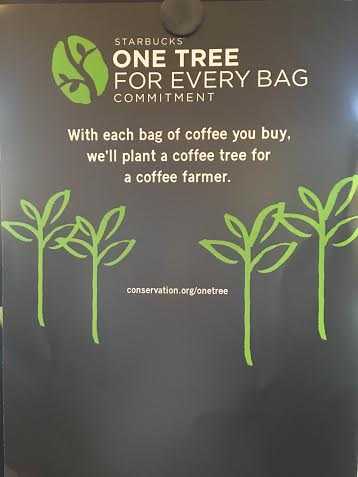BY CAROLINA PINTO*
Starbucks Coffee Company and Conservation International partnered on National Coffee Day, Sept. 29, to help donate coffee trees to farmers in South America.
Starbucks created “One tree for every bag” in September 2015, a project that consists of planting coffee trees in South America for every bag of coffee sold.
The revitalization of coffee farms with healthy trees will begin in September 2016, which will support the farms overall productivity and allow the farmer to increase quality for years to come, the Starbucks press wrote in an e-mail.
“For both the environment and for them to make a profit from quality coffee, it is a good campaign,” freshman Keyari Sleezer said. “It is great for American costumers to take part and help with such a large environmental issue.”
Starbucks sold more than a million bags of coffee in the first month of the project.
“Starbucks tries to be environmentally friendly,” PCH & Webb Way Starbucks employee Aureal Gleason said.
The coffee leaf rust is a plant fungus that destroys millions of plants all over the world, according to the article “Starbucks Distributes One Million Coffee Trees to Farmers,” on the Starbucks’ website.
It has damaged most farmers’ crops, especially in countries in South America, such as Mexico, Guatemala and El Salvador. The rust, consequently, leads to a lower production of coffee, affecting the coffee industry and “making it very challenging for farmers to make a living and provide for their families,” the Starbucks press wrote in an e-mail.
The coffee trees Starbucks will plant are intended to be rust-resistant, helping coffee farmers grow their yields and develop their plantations sustainably.
“Starbucks will ensure a coffee tree is planted in farming communities most impacted by rust,” the Starbucks press wrote in an e-mail.
Freshman Natalie Freeman said she thought the campaign would be beneficial.
“I appreciate the social and economic motivation behind that marketing technique, and as a consumer I am more than willing to vote with my dollar to support causes that are obviously important,” Freeman said. “As an economics major, I recognize the potential impact that Starbucks has just by their sheer size and influences.”

















